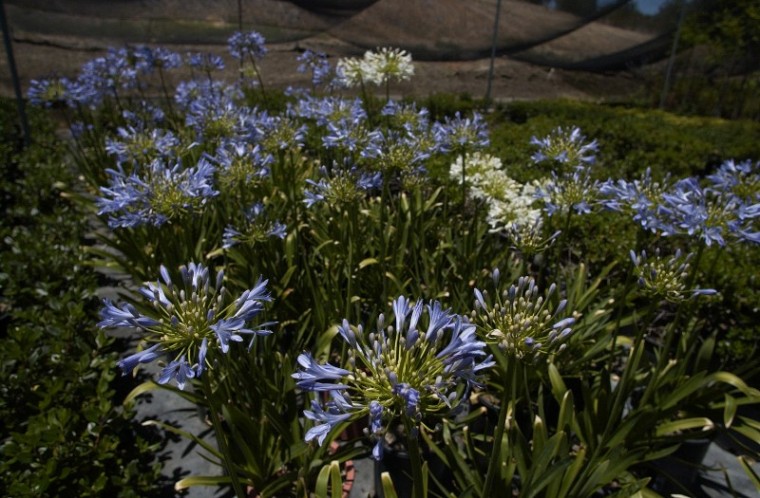Proper watering keeps plants and planet healthy
Whether or not it rains any more this season, California is
slipping into a worrisome drought year. That can be bad news for
gardeners who wonder what to do. Should they plant or not? Cut back
or eliminate?
Proper watering keeps plants and planet healthy
Whether or not it rains any more this season, California is slipping into a worrisome drought year. That can be bad news for gardeners who wonder what to do. Should they plant or not? Cut back or eliminate?
The good news is that there are ways to have a bountiful garden and use less water, because a short-term drought is mostly an inconvenience, not a killer blow to a garden, said Nancy Carman Schramm, the third generation nursery owner of Carmen’s Nursery in Gilroy.
“People think, ‘Oh no, we won’t have tomatoes or sunflowers or nice roses or a green lawn,'” Schramm said. “But you can have all those things with a little careful work.”
Such as?
For one thing, she says, weeds are a terrible waste of water. Weeds suck it up, and all you have for that wasted moisture is more green weeds. Dig out weeds, or use a weed killer, but get rid of weeds as a smart water-conserving step.
Take a look at how you deliver your water to the landscape.
“Make sure you don’t have any leaks, that sprinklers are working correctly, that timers are set for appropriate amounts and time between watering,” Schramm says.
A good thickness of mulch will definitely help the ground from losing moisture to evaporation.
“This is probably a good time to say that eucalyptus is just fine for mulch. Studies have been done to prove it,” Schramm said.
The only plant material not to use are black walnut and poisonous plants.
Water in the morning before the wind comes up. Morning watering is more effective and it is healthier for the plants. Keep water off the leaves to avoid mildew. If you are watering by hand, she says, use a hose-end water wand, not a sprinkler. A hose-end spinkler tosses water in the air where it evaporates more quickly and is a poor way to get water where it is needed most.
Don’t use your hose to “wash down” the driveway and sidewalks. It’s a terrible waste. If you need to clean cement, use a broom.
Whether the choice is flowers or vegetables or a mixture of everything found at the nursery – plant smart. For starters, this means grouping plants that have the same water needs. Put water-slurping vegetables in one spot, low-water-using herbs in another, and flowers among their own kind. Cactus and succulent plants do not need to keep company with tomatoes or eggplants. Too much water will kill cactus and succulents, too little will defeat tomatoes and eggplants.
Take a look at your landscape and decide what, if anything, you can do without. If certain rose bushes look sick, perhaps this is the time to dig them out. If the bougainvillea is struggling, or the rosemary bush is overwhelming, get rid of them. Why waste water on undesirable growth?
An established lawn has its own need for water. The experts say lawn watering consumes nearly half the water used by homes during the warmer season. It’s OK to be a little cheap with lawn watering, but those grass blades need adequate moisture. The Grass Farm in Morgan Hill suggests watering every third day. This means typically Sunday, Wednesday, Saturday, Tuesday and Friday during a two-week period.
Further Grass Farm advice: Don’t water during rainy or windy conditions.
Water conservation in the long term can include landscaping with drought-tolerant California natives, removing water-hungry plants and replanting the lawn with a low-water-version of grass, Dwarf fescue blends, such as the Grass Farm’s Champion Double Dwarf, for instance, are more drought-tolerant than some other varieties and look good, too.
Schramm has a final tip: Use fertilizer sparingly if at all.
“Lots of fertilizer will give you lots of new growth which will, in turn, need more water,” she said. Plants, particularly trees and shrubs, will endure without heavy doses of fertilizer.
In the end, folks should always practice water-conserving gardening. Whether it rains or not, this year or next, our water needs to be treated gently.









